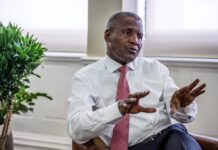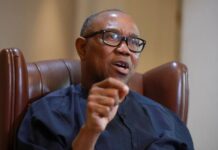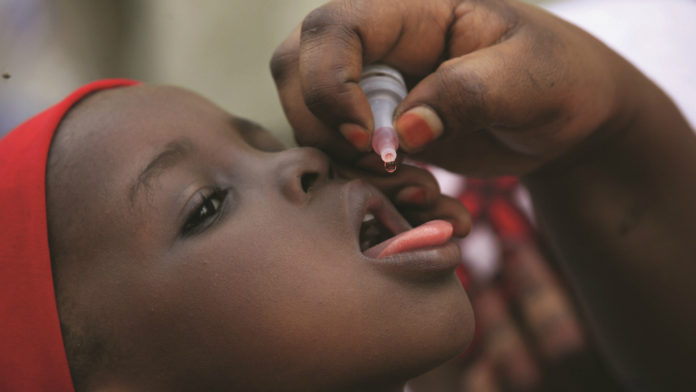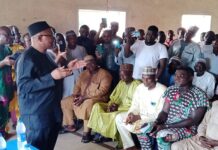Nigeria and indeed Africa have suffered at least a 3 year setback in the quest to being certified Polio free.
Between August and October 14 this year, 4 new Polio cases have been discovered in Gwoza, Jere and Mongunu Local Government Areas of Borno State in Nigeria after two years without a single case.
As at 2012, Nigeria accounted for more than half the existing cases and only 2 other countries, Afghanistan and Pakistan remained Polio endemic.
Nigeria had however since made very significant progress in its fight against Polio. On September 25, 2015, the World Health Organisation (WHO) announced that for the first time, Nigeria had interrupted transmission of the wild polio virus and was therefore no longer polio endemic, a major achievement which was celebrated within and outside the country.
The countdown to the country and Africa being declared Polio free thus began but was short circuited by the discovery of these fresh cases.
Where did Nigeria go wrong considering that reports appeared to show concerted efforts towards polio eradication in the country?
The new cases did not come as a surprise to some key stakeholders.
There are fears that more cases may even be discovered considering that the parts of Borno State where all four cases were found have been under siege by the Boko Haram extremist group. Access to those areas has been mostly impossible for polio eradication interventions. Thousands of children have therefore not been vaccinated. Health facilities were almost non-existent.
Nigerian Professor of Virology, Oyewale Tomori , described the development as disheartening, disappointing and demoralizing.
In an interview with citizentv.ng, he highlighted two major lapses in Nigeria’s effort to eradicate Polio.
First, he believes that Nigeria and the WHO conveniently “expunged” the inaccessible parts of Nigeria under Boko Haram from its consideration in declaring 24 July 2014 as the date of the last case of polio in Nigeria.
He also cites complacency and lack of adequate funding as huge challenges.
He said: “We went into an ‘orgy’ of premature celebration. Such was our eagerness to celebrate victory long before the ‘end of the game’ that politicians declared ‘polio freedom’ as dividends of democracy and parliamentarians edited funds for polio activities from the national budget.”
He went on: “Governors refused to provide counterpart funding for polio activities, while polio issues faded off the radar of local government authorities.”
In response to the outbreak, the Federal Government has made released N9.8 billion as special fund to tackle the menace. Rounds of immunisation have been launched in 18 Northern States.
These campaigns according to the Minister of Health, will be synchronized with the affected regions and provinces in neighbouring countries like Chad, Niger, Cameroun and Central African Republic.
Experts describe this as a welcome development as neigbouring countries which are Polio free are vulnerable and remain at risk of the virus spreading.
Also, for the nationwide response, an estimated 56,363,618 children will be vaccinated between October and November 2016.
It is important that Nigeria gets it right this time, a stakeholder told citizentv.ng
There is also a call for available funds to be channelled to the right direction, managed and adequately accounted for.
The fight against the insurgents must be won in order to resume free access to the affected areas but in the interim, our military medical corp should always be right behind our soldiers and be prepared to take care of medical emergencies of the affected communities, this time armed with polio vaccines to effectively take care of those children who may have been missed by civilian vaccinators.
The power of information cannot be overemphasized. Having been on the field myself, I witnessed that many still do not understand the dangers of not vaccinating children aged 0 to 5 against polio. Many are still of the notion that the vaccine is poison, for population control and may even be directly responsible for paralysis in children.
In a situation where traditional rulers are still shying away from being identified with polio vaccination, it is a likelihood that the subjects will follow suit.
The government must create channels to reach out to these traditional rulers, Imams and opinion leaders in order to dispel these traditional and sometimes religious beliefs.
The government and its partners must device even more relatable means of creating awareness especially in the rural areas and religious places.
More traditional rulers should emulate leaders like President Buhari and the Sultan of Sokoto and become polio eradication ambassadors,
The parliamentarians can see the direct effect of not researching thoroughly before expunging an item as important as this from the budget. They must work towards bringing funding for polio back into the budget.
The local government is the tier of government closest to the people in the rural areas. They must be strengthened in order to carry out their functions as they relate to polio eradication, effectively.
So much funding and effort have gone into the fight to end polio. The government must get it right this time as there are still other diseases beckoning its attention.

























